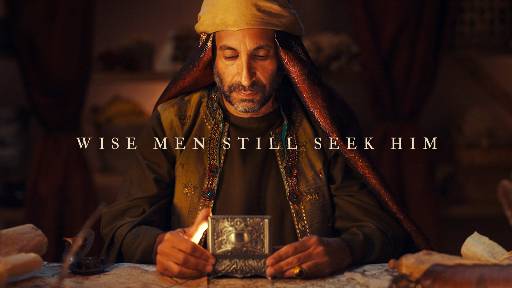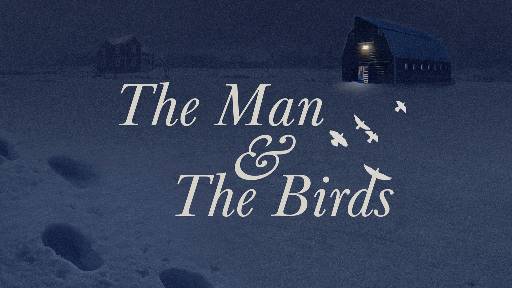-
1st Sunday After Epiphany, Year C. Series
Contributed by Christopher Holdsworth on Jul 25, 2024 (message contributor)
Summary: January 12th, 2025. Baptism of the Lord.
Isaiah 43:1-7, Psalm 29:1-11, Acts 8:14-17, Luke 3:15-17, Luke 3:21-22.
A). PRECIOUS IN HIS SIGHT, AND LOVED.
Isaiah 43:1-7.
This beautiful poem is a love letter. It is from the LORD, who created the world (Isaiah 40:26), and who directs the affairs of nations (Isaiah 40:22-23). It is from the One who created Jacob, and formed the nation of Israel (Isaiah 43:1).
The LORD exhorts His people to “fear not” (Isaiah 43:1).
This reassures the captive Jewish exiles in their plight. It speaks to strangers and pilgrims in this earth (1 Peter 2:11). It greets a people who are scattered abroad, (James 1:1).
“Fear not,” He says - “for I have redeemed you” (Isaiah 43:1).
Your Creator is also your Redeemer. For the Christian, the link between creation and redemption is the Lord Jesus Christ (Colossians 1:16; Colossians 1:20).
“I have called you by name. You are mine” (Isaiah 43:1).
The LORD addresses His people in the first person singular, speaking to them collectively as one person, and each one individually. We are called by name (see John 10:16), and become His peculiar possession.
“When you pass through the waters…” (Isaiah 43:2)
recalls the Exodus, when the people passed through the sea upon dry land (Isaiah 51:9-10). Significantly, this is described as the fathers being “baptised into Moses” (1 Corinthians 10:2). The One who has called us has also instructed us to pass through the waters of baptism, and promises to be with us (Matthew 28:19-20).
“I will be with you” (Isaiah 43:2).
‘Emmanuel, God with us’ is one of the names of Jesus (Matthew 1:23).
“Rivers… shall not overflow you” (Isaiah 43:2).
He promises to be with us, also, when we pass through troubled waters. He does not necessarily promise to spare us from trouble, but promises to sustain us through it. The LORD led His people through the Jordan river in the flood season (Joshua 3:15-16).
“When you walk through the fire, you shall not be burned” (Isaiah 43:2).
The LORD appeared to Moses in a bush which burned with fire but was not consumed (Exodus 3:2). For the Judean exiles, the fire was the burning anger of the LORD against their nation (Isaiah 42:25). Yet, in God’s mercy, there was always a remnant who were not consumed (see Daniel 3:17; Daniel 3:27).
“I (am) the LORD your God ” (Isaiah 43:3).
Just as we are His, so He is ours. He is “The Holy One of Israel” (Isaiah 43:3), and expects His people to partake of that holiness (1 Peter 1:16). Yet He is also our “Saviour” - and styles Himself as husband to His people (Hosea 2:16).
In His anger, the LORD ‘gave Jacob for a spoil’ to the Babylonians (Isaiah 42:24). Now He rewards the Persian king Cyrus for releasing His people. He gives other nations as a ransom for them (Isaiah 43:3-4), thus expanding Cyrus’s empire.
“You were precious in my sight” (Isaiah 43:4).
The LORD chose Israel out of His love for them, and He loved them because He had made a promise to their fathers (Deuteronomy 7:6-8). The first disciples did not choose the Lord, but He chose them (John 15:16). The church is ‘chosen in Christ from the foundation of the world’ (Ephesians 1:4).
“You have been honoured, and I love you” (Isaiah 43:4).
We may be able to trace the day and name the date when we ‘made a decision’ for Christ - but His love precedes ours. His love gives us our identity in Christ. ‘We love Him, because he first loved us’ (1 John 4:19).
“Fear not,” He says: “for I am with you” (Isaiah 43:5).
‘I will never leave you nor forsake you’ (Hebrews 13:5).
The LORD promised to gather the children of Jacob from the four points of the compass (Isaiah 43:5-6). This anticipates the return of the Jewish exiles, but also the in-gathering of the nations. People will come from the east, the west, the north and the south, and sit at table in the kingdom of God (Luke 13:29).
Christians are called by HIS name (Isaiah 43:7), and become His peculiar possession. The LORD created the Christian, and formed the church, “for His glory” (Isaiah 43:7).
B). THE SONG OF THE THUNDERSTORM.
Psalm 29 - “The voice of the LORD”.
1. The thunderstorm
Storm clouds gather over the Mediterranean. The thunder rolls inland over the cedars of Lebanon, and lightning strikes strip the cedars bare. Even the mountains of the North seem to be shaken to their very foundations. The storm turns, travelling the whole length of Israel, and seems to shake the wilderness. The sand cannot remain still, and anything loose is driven like tumbleweed across the plain. The red deer calves early, and all creation stands in awe at the might of the storm.

 Sermon Central
Sermon Central


